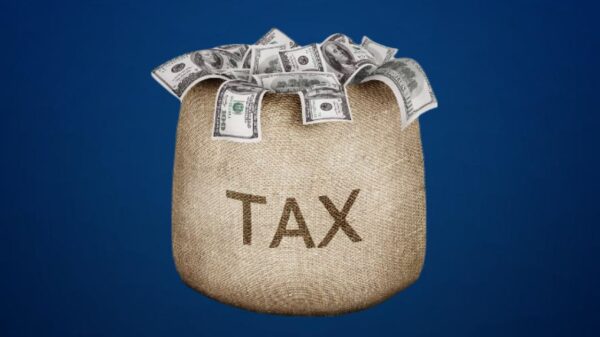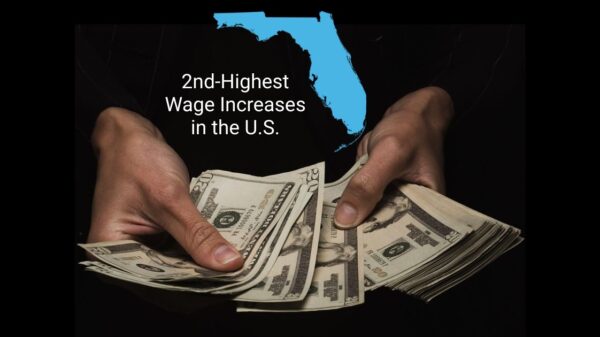Data from the Federal Trade Commission and the U.S. Census Bureau shows the city of Miami has the highest number of credit card fraud complaints in the country.
Upgraded Points (UP) a company that provides online content about travel, points, miles, credit cards, and hotels, recently compiled statistics revealing the top common credit scams consumers are racing.
Scam 1: Skimming Scams.
Skimmers are small devices which are often attached to industrial card reader machines (such as an ATM or a gas pump). They work by reading the magnetic stripe on the back of your credit card.
Scam 2: Credit Card Interest Rate Reductions.
These attacks see scammers prey on vulnerable people looking for a much-needed reduction in the amount of interest they need to pay back on their credit. The scammer tells the person all they need to do take advantage of this fantastic offer is to pay a one-off lump sum to the company on the other end of the phone.
Scam 3: Randomly Generated Credit Card Numbers.
When a fraudster uses a computer program to generate thousands of potential credit card numbers and CVV codes in seconds. These will be used to run a series of test micro-purchases until they find a combination which results in an approved transaction.
Scam 4: Identity Fraud.
The modern approach to identity fraud often centers around direct contact being made with the victim. A scammer will reach out to an individual and lure them into giving up personal information, including credit card details.
Scam 5: The Charity Scam
Scammers use this shortly after a natural disaster, like a hurricane, flood, or earthquake, you may receive a cold call, text, or email asking to help support victims. The caller often claims to be from a respectable organization and cites the matter as urgent.
Scam 6: Phishing Scams.
This happens when a person is sent an email with a message prompting them to click on a link to a fraudulent site. When doing so, users will often be greeted with what seems like a legitimate landing page – usually to a bank or commercial website. At this point, the victim might be tempted to add credit card details in order to make a payment. In reality, they’re just handing over their personal data to a criminal.
Scam 7: Identity Fraud.
As technology continues to evolve, thieves become more creative. Radio-frequency identification (RFID) sees a criminal use a device to virtually “scrape” your credit card information by standing close to you.
Scam 8: The Threatening Cold Call.
This is where a con artist cold calls an individual and threatens to prosecute them for not paying their taxes or (ironically) committing credit card fraud themselves.
Scam 9: Government Imposters
The scammer will claim to be a representative of the Federal Deposit Insurance Company (FDIC). They’ll often claim that you owe money and will usually use the names of legitimate FDIC employees they’ve found online in order to convince a victim of their authenticity.
Scam 10: “Formjacking” on Trusted Websites
Malicious software (malware) can sometimes be injected into the website forms of legitimate businesses. This allows a hacker to steal your private info (including credit card data) when you’re making a purchase. A particular favorite of scammers is Ticketmaster.
Scam 11: Hidden Small Purchases
If a criminal does manage to get their hands on your personal data, they’ll sometimes only make small purchases using the card. These are a lot harder to spot.
Scam 12: The Hotspot Scam
You are looking for to find an internet connection to latch onto when you’re out in public. Unfortunately, these hotspot networks can sometimes be a trap set by crafty scammers. They’ll ask for a small charge to be able to use the Wi-Fi they’re offering. In reality, you’re handing over your access to credit card data to a con artist by joining an unsecured network.
Scam 13: Supplemental Security Income (SSI) Scam
Scammers will often target people who receive SSI, claiming that they’re either owed more money or need to pay some of what they’ve been given back. They’ll rush someone into giving out personal details like their Social Security number or their card details for an immediate payment.
Scam 14: Fraudulent Sweepstakes
A particularly ambitious scam sees people running false lottery sweepstakes. They’ll claim that an individual has won a huge prize then they ask them to pay an upfront prepaid tax sum in order to get access to the winnings. A recent case centered around a Mississippi couple who managed to steal more than $300,000 from their unsuspecting victims.
Scam 15: The Overcharge Scam
This particular scam is growing in popularity. You’ll be contacted and informed that your card was accidentally overcharged for a recent purchase. All you have to do is hand over your card details and they’ll be able to “send you the money back.”
Scam 16: Public Wi-Fi Exploitation
This mistake which people continuously make over public Wi-Fi, where hackers intercept unsecured financial data that you’re sending between yourself and your bank.
Scam 17: The “Sign-up Farm”
Bizarrely, victims of this scam are often partially responsible for the illegal use of their cards. People with average-to-good credit scores will be contacted and asked for use of their Social Security numbers in exchange for huge lump sums. Scammers then use their cards to rack up huge reward points, convert the points to cash, then cancel the cards. This sometimes leaves the victim with a huge amount owed and very little they can do to fight the charge. After all, they sanctioned it in the first place.
Scam 18: Fake Websites
For those who are less digitally savvy, scammers create websites that look and function in a similar way to legitimate pages. They’ll include fake login and payment areas that are designed to trick someone into handing over their data.
Scam 19: Dumpster Diving
It’s still popular. Thieves searching through the garbage for private data is still a low to which some criminals are willing to stoop to. They’ll be able to get hold of sensitive information if you’ve accidentally thrown out a replacement card, as well as any preapproved cards and bank statements.
Scam 20: Social Media Fake Friends Scams
Alongside posting phishing links to fake websites and forms, you may also get added by someone who claims to be your friend using a new account.
In reality, this fake persona will likely send you a link that contains malware. Also, make sure to avoid downloading any apps which aren’t directly from an official app store.






















